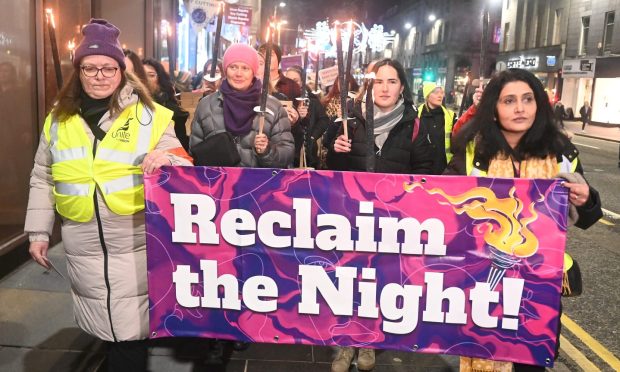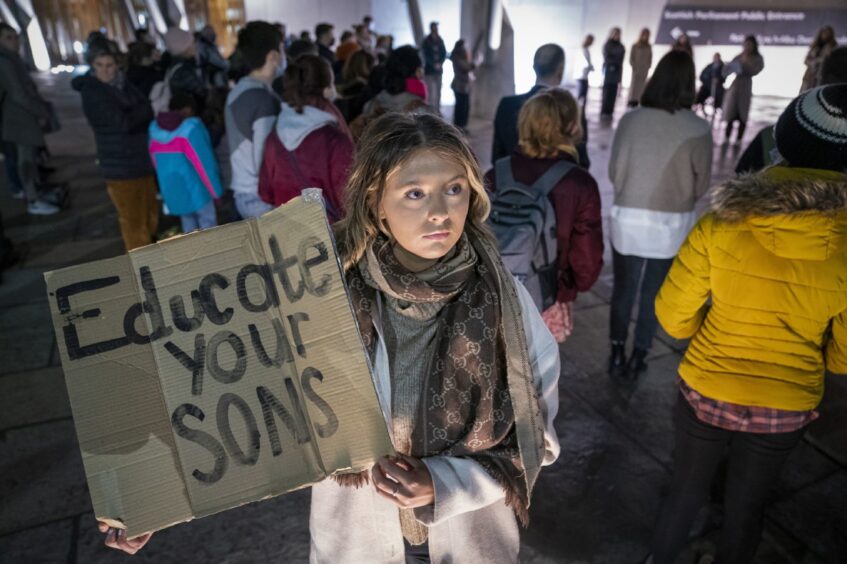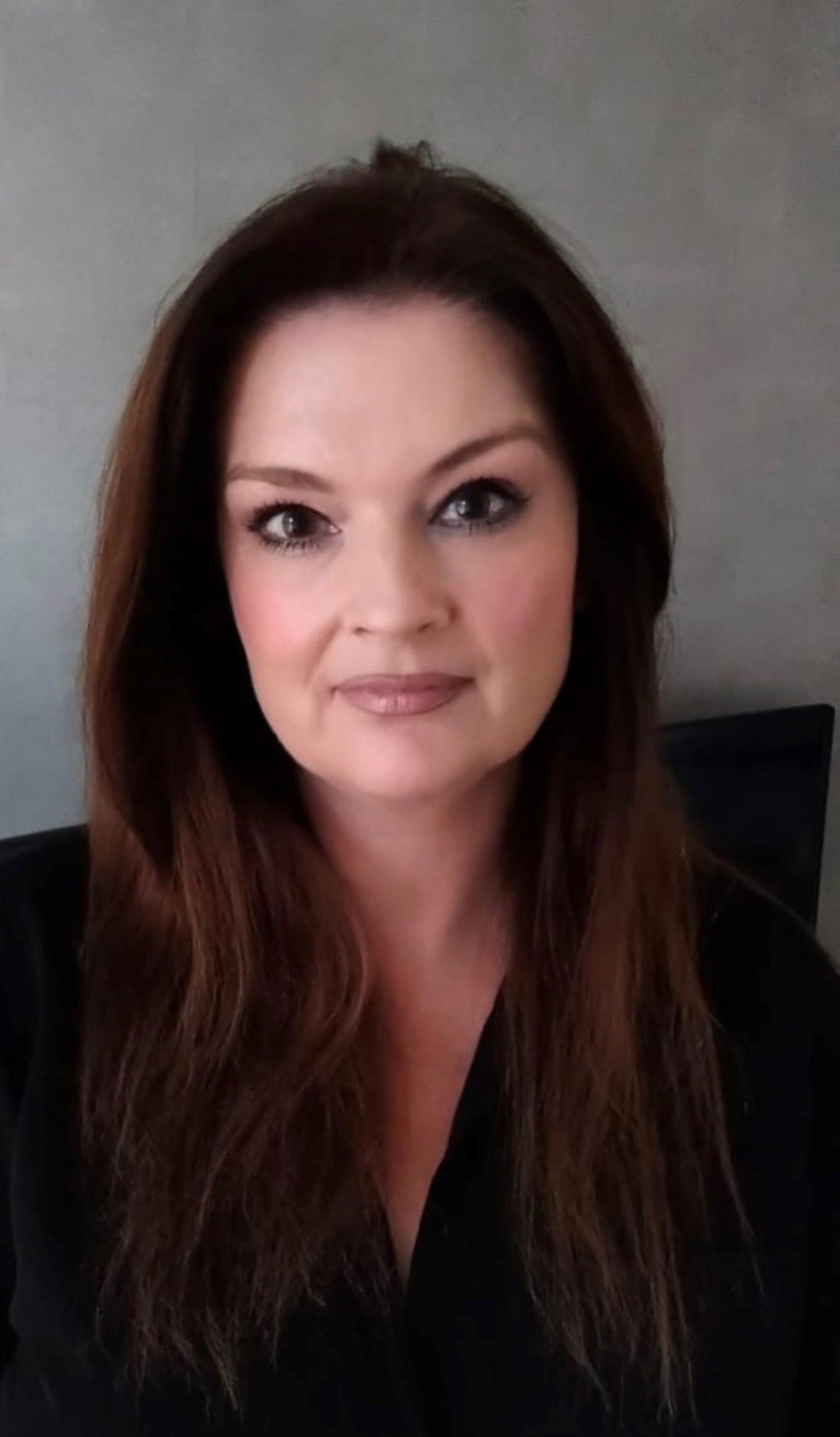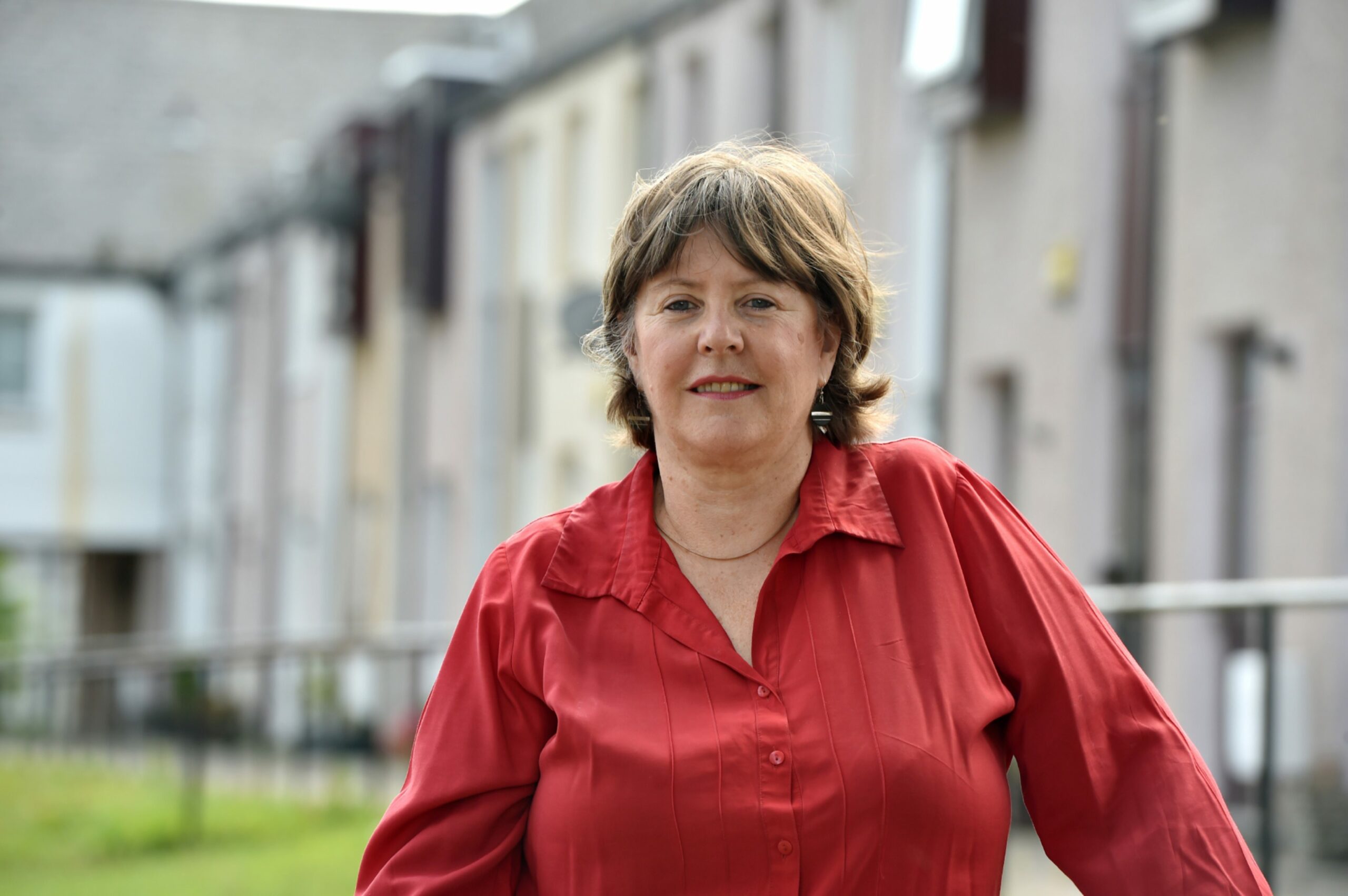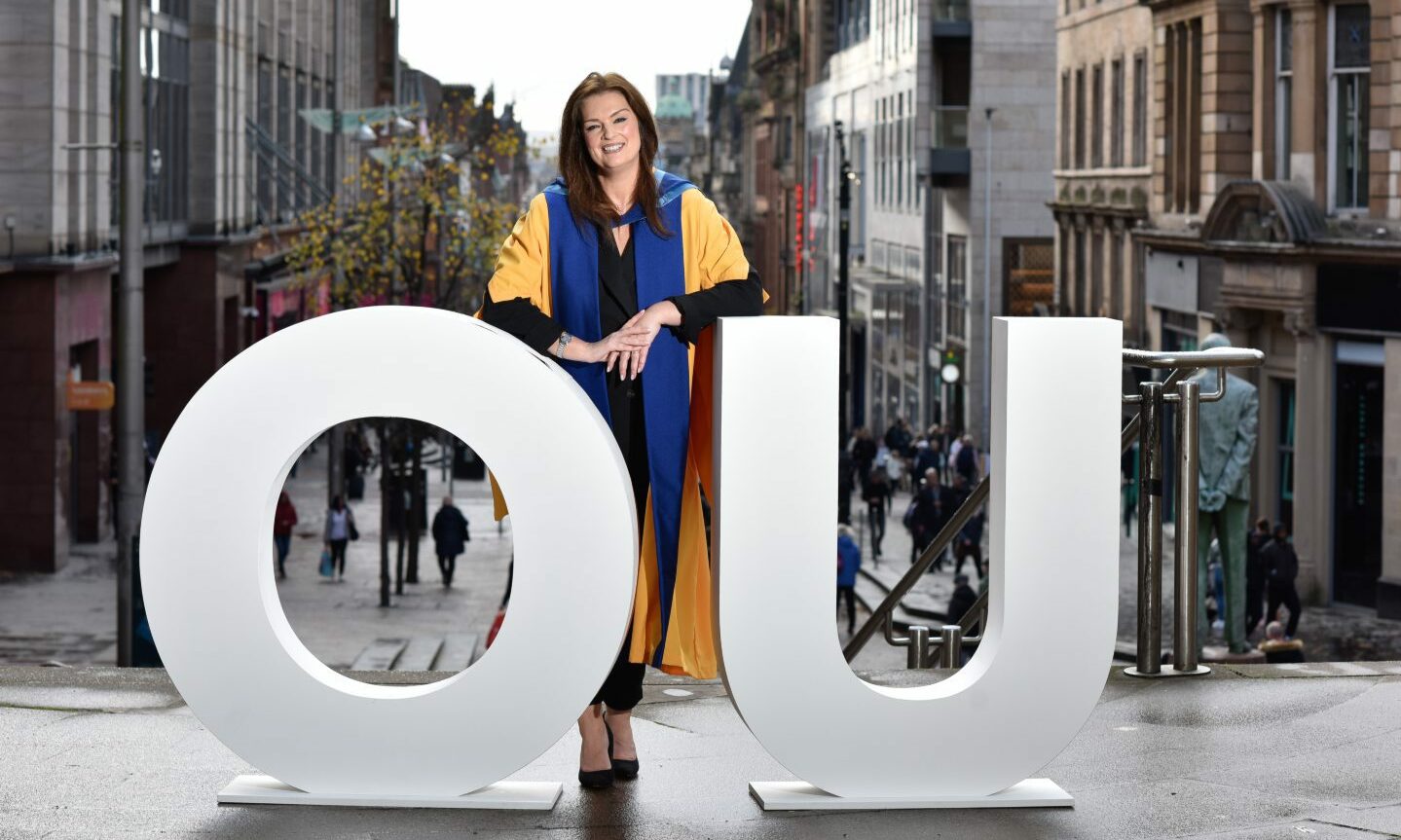Fiona Drouet shook her head as she read about the inquiry into Wayne Couzens, the Metropolitan Police officer who murdered Sarah Everard three years ago this weekend.
Since the publication of the report further allegations against Couzens, who is now serving a whole life order, have emerged.
The allegations include that he sexually assaulted a girl when he was in his early 20s and before he joined Kent Police. It has also been revealed he was reported to police eight times for indecent exposure before he killed 33-year-old Ms Everard.
Responding to the report Home Secretary James Cleverly has since said that police officers will be automatically suspended in future if charged with certain criminal offences.
The battle to tackle gender-based violence
However, the shocking findings of the report summed up the scale of the task facing those such as Mrs Drouet – who lost her daughter, Emily, to suicide at Aberdeen University in 2016, following a campaign of abuse by her boyfriend – who are striving to tackle the blight of gender-based violence.
As she told the Press & Journal: “It’s absolutely appalling and inexcusable. The police really need to re-assess their vetting processes, not to mention the toxic culture that has failed – and continues to fail – so many women and girls.”
Yet, as we approach another International Women’s Day [on March 8], Mrs Drouet is among the inspiring women speaking out about the rise of toxic masculinity spread by so-called “influencers” on social media, and the increase in abuse of female politicians which has led to some MPs at Westminster being offered police protection. And there’s also the findings of a Crown Prosecution Service survey which discovered around half of young men believe there is nothing wrong with raping women if they are drunk, drugged or refuse to fight back.
As the CPS noted: “The response of 18-24-year-olds in upholding views based on false assumptions and misconceptions was particularly striking: only half recognised that it can still be rape if a victim doesn’t resist or fight back and less than half recognised that being in a relationship or marriage does not mean consent to sex can be assumed.”
‘Survey concerning but not surprising’
It’s these attitudes which have caused such widespread concern and been the catalyst for the relaunch of such initiatives as the Reclaim the Night marches, one of which was held in Aberdeen, following the horrific crime committed by Rhys Bennett, 23, who raped, murdered and set fire to mother-of-two Jill Barclay in 2022.
And while such incidents are still mercifully rare, recent polls have demonstrated that an increasing number of women are scared to go out on their own after dark.
Mrs Drouet said: “Obviously the [CPS] survey is concerning, but it’s not surprising. Sadly, social media heavily contributes to these problematic opinions, fed into by misogynistic ‘influencers’ such as Andrew Tate [who has a huge global audience despite being incarcerated in Romania for more than a year after being charged with rape, human trafficking, and forming an organised crime group to sexually exploit women].
“However we have to remain optimistic because awareness-raising efforts around consent, respect, and equality are happening across Scotland. My concern continues to be the absence of sex education in our schools.
‘A problem of endemic proportions’
“I firmly believe that we are failing a generation, and those to come, by not having adequate education in our schools on what is a healthy relationship and what is an abusive one and the difference between healthy sex and what is abusive and harmful.
“Increasingly, we see skewed perceptions of what the norm is and that will continue until we counterbalance the harmful content young people are accessing online.
“I find it difficult to believe that social media technology cannot be further developed to include adequate filtering of blatant misogyny, given the incredible advances in technology which are being made.
“Such advancements could effectively filter out harmful content and hate speech, yet there appears to be little significant will to implement more stringent restrictions on these platforms and that is very disappointing.
“But politicians of all parties need to recognise this is a problem of endemic proportions and will continue to grow if we don’t take a strategic approach.”
Sandra Macdonald, one of the founding members of Aberdeen Women’s Alliance, is among those who is convinced that criticism aimed at political figures on all sides is too often personally offensive and women are the victims in the majority of cases.
She told me: “It took decades of struggle for women to get the right to vote, and decades more to get the opportunity to play a full part in political life on the same terms as men.
‘Taking the name calling out of politics’
“If we allow the current culture of abuse and intimidation to continue unchecked, we are in danger of going backwards to a place where women are excluded once again.
“Every woman knows it is a small step from being called names to facing the threat of physical violence, so we have to start by taking name-calling out of our politics.
“Every time a politician or a journalist uses emotional or abusive language about someone with whom they disagree, they give permission to online trolls to do the same, and that can quickly lead to serious threats, intimidation and violence.
“Words matter, so if we want a healthy political culture, we have to have no more verbal abuse of political decision-makers, no matter whether or not we agree with their decisions. That is the only way that women can play our full part in public life.”
‘There is still much work to be done’
At least, work is being done in many universities and colleges throughout the country and Mrs Drouet has been instrumental in the development of the EmilyTest venture, which has been supported by the Scottish Government in recent years.
However, even here, the uptake has been patchy and the implementation has been better in some institutions than others.
Mrs Drouet said: “While significant progress has been made in universities and colleges over the past eight years since we lost Emily, there is still much work to be done.
“With 19 universities in Scotland, it is concerning that only six of them are engaging with the GBV Charter framework, which falls short of our expectations.
“Early evidence shows the charter can bring about cultural change in our institutions, yet many are not actively participating or recognising the value of having their efforts assured by independent experts working within an evidence-based framework.
‘Can’t accept abuse as part of public life’
“I frequently hear excuses such as ‘the government isn’t investing in this’, yet it’s important to note that the government has invested in EmilyTest and continues to fund the research and development of this groundbreaking framework which is aimed at effectively tackling GBV prevention, intervention, and support.
“My heartfelt plea to university leaders is to earnestly consider this opportunity and engage in dialogue with us, because surely we all share the common goal of ensuring the safety of our students.”
Meanwhile, Kirstene Hair, director of Empower Coaching and a former Tory MP for Angus, told me: “We cannot accept that the daily bombardment of abuse is simply part of a role in public life, and that women just need to become more thick-skinned.
“Conscious and unconscious bias towards women is prevalent across society, and it is hurting business, politics and the prospects for women of all ages and backgrounds.”
